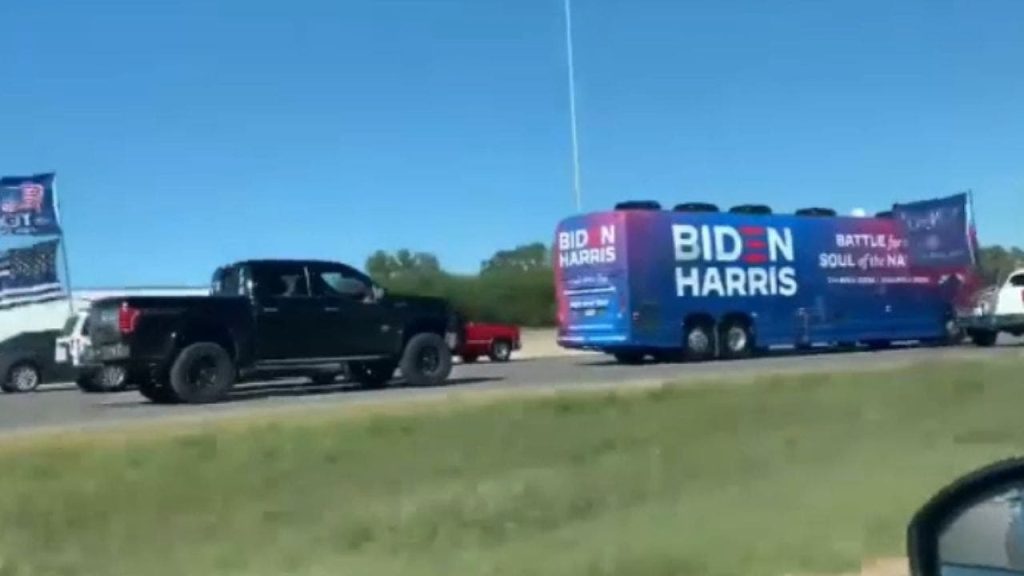In a federal civil case known as the “Trump train trial,” a driver of a Biden-Harris campaign bus testified that he felt threatened and under attack when the bus was surrounded by a convoy of former President Trump supporters on a Texas interstate days before the 2020 presidential election. The driver, Timothy Holloway, described feeling a clenching sensation in his stomach and sweaty palms as he worked to stay calm during the incident, which forced him to slow down to speeds as low as 5 or 10 miles per hour. The lawsuit alleges political intimidation and assault under the federal Enforcement Act of 1871, seeking punitive and compensatory damages from the six Trump supporters involved in the incident.
Holloway, along with former Democratic Texas state Sen. Wendy Davis and other campaign staff, is suing the Trump supporters for their actions during the incident. The plaintiffs claim that the convoy of Trump supporters attempted to run the bus off the road and caused a collision between a pickup truck and a Biden campaign SUV, although the defendants deny driving recklessly. Video evidence shows the Biden campaign SUV repeatedly driving between lanes, with the plaintiffs arguing that some of the convoy members believed candidate Kamala Harris might have been on board, although she was not.
The defense attorney representing the Trump supporters questioned why Holloway did not pull off the freeway or seek safety at a police station if he felt threatened during the incident. Holloway explained that stoplights on frontage roads could have allowed the Trump Train drivers to surround the stopped bus, making it unsafe to stop. Theron Bowman, a former police official working as an expert witness for the plaintiffs, testified that the Trump Train drivers posed a serious threat to traffic safety and their actions appeared coordinated. Video evidence shows the convoy braking together to slow the bus down.
One of the defendants, Robert Mesaros, who pulled in front of the bus during the incident, claimed he did so because the bus driver honked the horn, which he interpreted as a signal to pull over due to a damaged flag on his truck. However, Bowman argued that the sustained honk was a signal for Mesaros to move out of the way. He also pointed to cell phone videos from defendant Dolores Park, where she can be heard describing how the convoy drivers could slow down the bus and prevent it from breaking up. The trial includes testimonies from both sides, with the defense arguing that the convoy was merely showing vocal support for Trump.
Former Texas state Sen. Wendy Davis, who was also on the bus during the incident, testified that she felt like she was being held hostage and experienced a heightened level of fear and anxiety. The trial is set to resume on Thursday, with witnesses testifying about the actions of the convoy of Trump supporters during the incident on Interstate 35. The plaintiffs are seeking damages for assault and political intimidation, while the defense maintains that the Trump Train participants were merely expressing support for their political candidate in a loud manner.
The trial highlights the contentious atmosphere surrounding the 2020 presidential election, where incidents of political intimidation and clashes between supporters of different candidates were not uncommon. The testimony of witnesses, including the bus driver and campaign staff, sheds light on the fear and uncertainty experienced during the road incident. The outcome of the trial will determine whether the actions of the Trump supporters during the incident constituted political intimidation and assault, as alleged by the plaintiffs, or if they were simply exercising their right to show support for their preferred candidate in a public setting.


